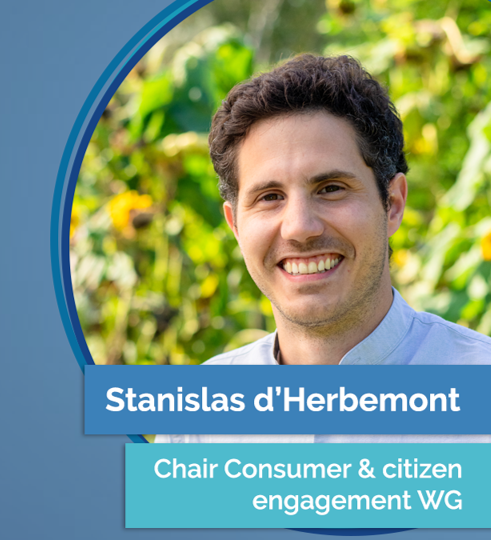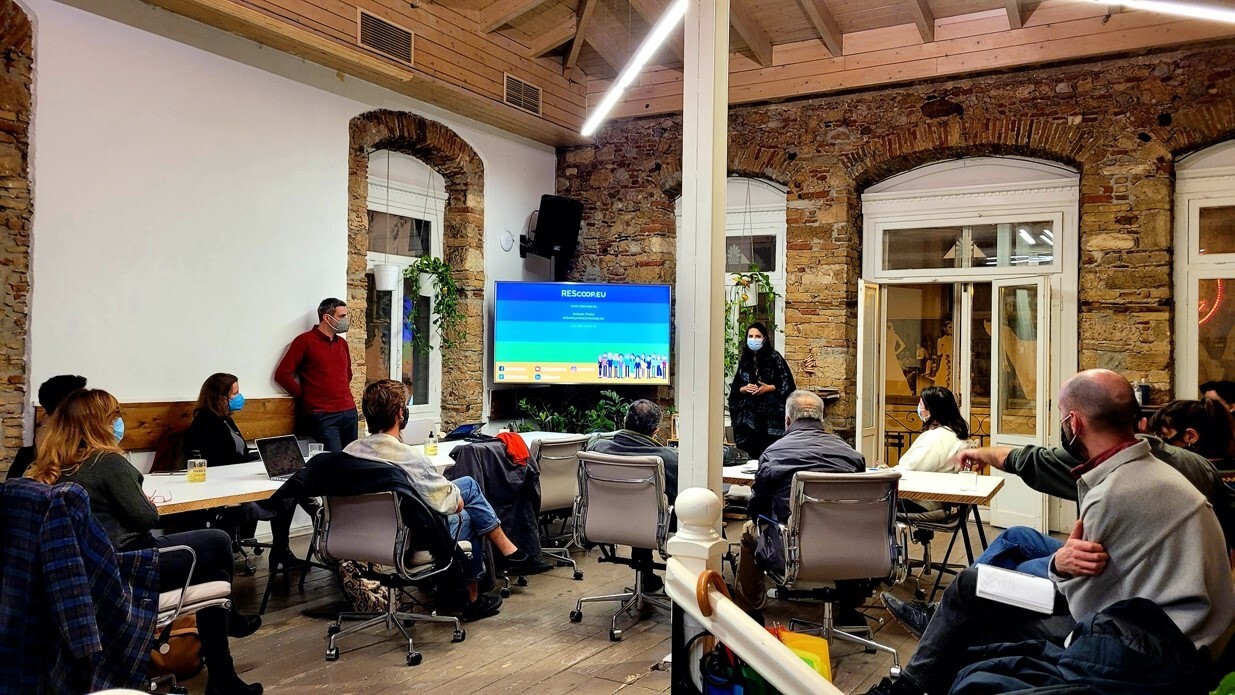News
Conclusions of the BRIDGE working group on Consumer and Citizen Engagement
The BRIDGE Initiative is a dialogue platform for Smart Grid research and innovation projects financed by the European Commission through the H2020 and now Horizon Europe programmes. This platform is divided into 4 working groups, each dealing with an aspect of the work of European R&I projects. Each group provides conclusions and recommendations to the European Commission with the aim of supporting the policy making process and adapting the funding mechanisms to the reality of consortia.

Since 2020, REScoop.eu - for the COMPILE project - has been leading the working group on Consumer and Citizen Engagement (CCE WG) since 2020. The group focused on the collaboration, understanding and management of consumer collective action as a tool to advance research and innovation at European level. The aim was to better understand how consumers can play an active role in projects and how the change in this status also impacts the relationship with project consortium. Over the past two years, the group has identified several gaps in the concept of engagement in relation to private consumers. However, despite the short time frame of the work (2 years), the CCE WG has seen a significant evolution in the way projects engage and empower consumers to take up an active role and co-create research results.
The working group has produced an annual report highlighting the research work performed in collaboration by the 50 projects part of the CCE Working Group. Our colleague, Stanislas d’Herbemont - who chaired the working group last year - highlights the following conclusions of this report:
“The main conclusion of the work is an understanding of the variations in the intensity of private consumer engagement over the life of the project. We call this the ladder of engagement in R&I projects:
- Information: Consumers often receive information about the goals and purpose of the project. This type of information is often provided during public events, in the best-case scenario with the support of local representatives and with the opportunity for the public to ask questions about the project’s goals and impacts.
- Consultation: Consumers are invited to share concerns, questions and ideas that could be taken up by the project partners. These recommendations and requests are registered and addressed by the project consortia. The final decision on the implementation of those demands or recommendations remains in the hands of the consortium. In the best-case scenario, consumer participation is institutionalised throughout the project in a clear and continuous process.

- Participation: Consumers have a well-defined role and are invited to participate in the roll out of the project. This can be achieved through the involvement of collective action schemes or representative organisations. Through these mechanisms, consumers can make recommendations and have a decisive impact on the results of the project. Consumers participate the validation and testing of the final results.
- Ownership: Consumers have a decisive impact throughout duration of the project. Consumers (or their collective organisation) influence the goals and objectives of the project through co-creation processes. They have a clear role in the project and become co-owners of the results produced.”
The Consumer and Citizen Engagement working group also formulated a range of barriers:
“Despite the efforts of project consortia, several barriers are still hamper the potential of projects:
- Lack of recognition for design-driven approaches: Horizon 2020’s proposal process tends to focus on a result-based approach, which may prevent projects from co-creating research results with consumers. The need for a pre-existing structure often prevents projects from creating solutions tailored to the users, and is therefore often oriented towards economic or research interests rather than consumer needs. This lack of flexibility in the process prevents projects from adapting to the uncertainty of community building and the adaptability of project objectives to local needs. A process-driven approach to project development could allow some projects to focus on community-driven outcomes..
- Project monitoring and indicators focus exclusively on technological outcomes: R&I indicators are often focused on the TRLs and lack the indicators base to assess consumer engagement and community value. Projects often face difficulties in valuing the impact of their results at local level. In particular, the ‘stage of change’ approach could contribute to a better understanding of the impact on social and community aspects.
- Lack of common language and definitions: during this two-year experience, the working group has often had to clarify what is meant and what definitions are used to define collective action models and consumer interactions. The lack of consistency in the language used both in the call and in the proposals is often a source of misunderstanding and misalignments of project results.
- Lack of end-user ownership: based on the two previous conclusions, it is also important to note that end users, or the subjects of research in R&I project are often unable to have ownership of the projects they are part of. Many of the consortia that were interviewed struggle to keep consumers engaged throughout the project. Some communities are experience “project fatigue” after being included in several innovation projects in a row. This is because the ownership of the results often remain with the technical partners, meaning that pilot sites do not have long term impacts on their communities.”
Based on those lessons, the working group considers collective action mechanisms (energy communities, self-consumers’ collectives, etc.) and representative mechanisms (municipalities, consumer organisations, NGOs) as key actors to promote the compatibility of research results with concrete impacts in the lives of European consumers and citizens. Therefore the working group formulates several recommendations:
“The working group would like to see more systematic involvement of those actors in the R&I programs – and more advanced participative processes.
More specifically, the group recommends that social innovation and citizen science be given a specific place in R&I programming at the European level. Innovation should not only be defined in terms of potential tool features, but also in terms of innovative approaches, governance models and usage.”

The open and transparent dialogue process of the Working Group has also made it possible to expose the lack of knowledge building in BRIDGE projects.
Often, projects running in parallel do not have the opportunity to benefit from each other’s experiences and lessons learned. The lack of flexibility in project deployment processes and the lack of transparency around project failures and successes often mean that projects do not have the ability to collaborate and learn from the experiences throughout the life of the project. This is a role that the WG CCE will continue to play in the future.
A number of key questions remain regarding the engagement of consumers and citizens.
“More specifically, the ability of projects to fully integrate consumers through various governance mechanisms and tools remains to be explored. Enabling, deepening and empowering engagement also depends on the overall project structure within which projects must operate.
The working Group advises exploring more explicitly how the overall criteria and the design of the project structure can enable more meaningful engagement to enable consumers and citizens to contribute more effectively to just and green energy transitions in Europe - and beyond.”
In 2022, the chairmanship of the working group was passed to Johanna Höffkens of TU Eindhoven. The newly formed working group will focus on three main objectives :
- Deepening the research on indicators that qualify consumer engagement, by investigating potential baselines for those indicators and studying the cross-interactions between indicators. The working group will aim to create a repository of indicators for future projects and funders.
- Explore ways to create more grassroots involvement in the development of tools and technologies produced by European R&I projects – and to create more access to ownership for those tools.
- Examine strategies for project engagement and how project partners can be given more flexibility and responsibility with regard to consumer participation and the impact on project implementation.